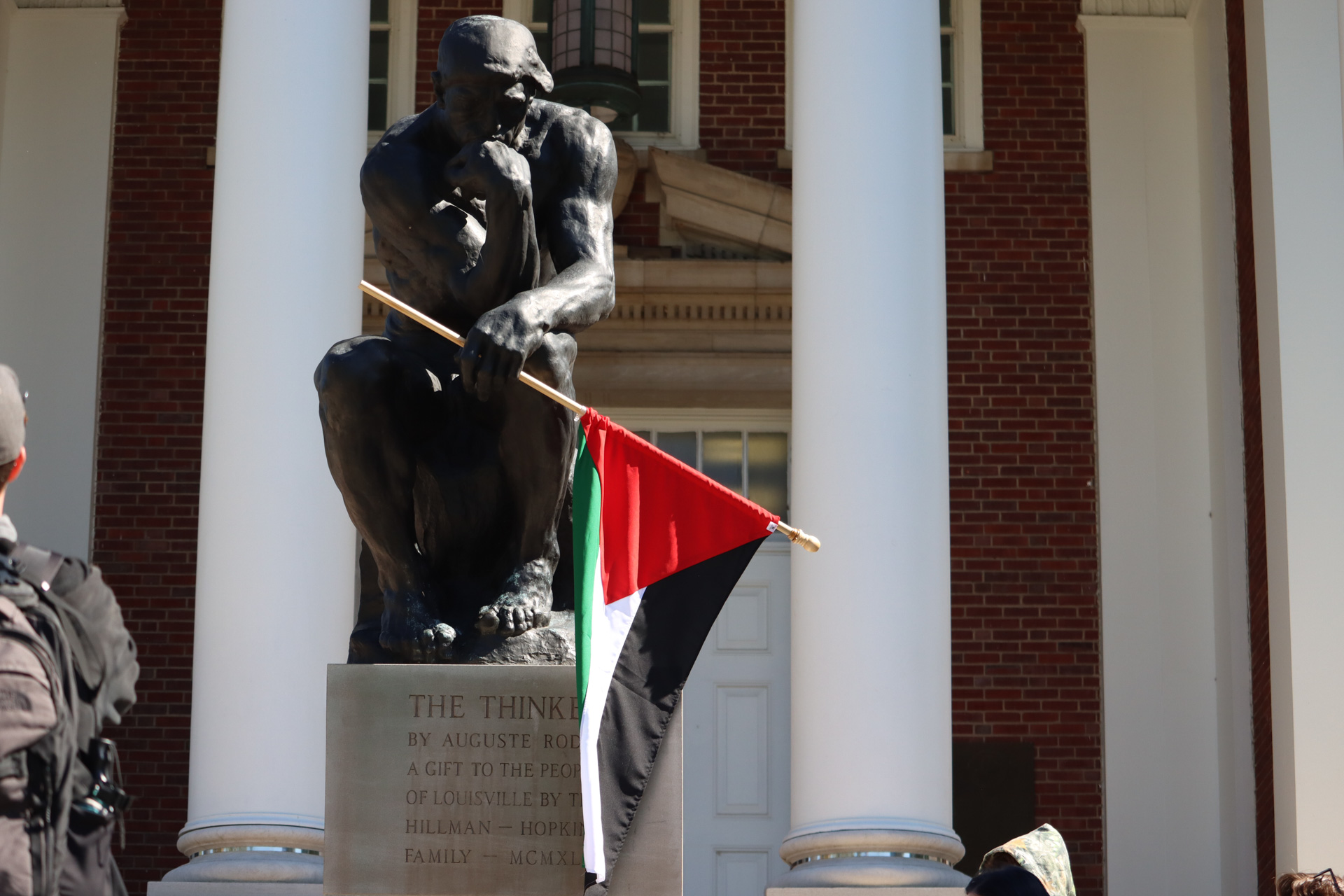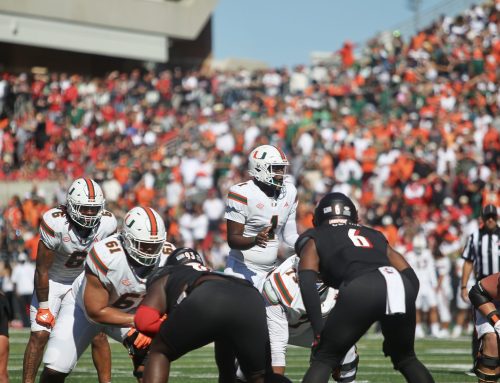By Savannah Dowell
Forty years ago, U of L set the precedent that institutional financials would not be entangled with apartheid South Africa.
Today, university administration has refused to even entertain a conversation with students on divestment from Israel and has instead suspended Louisville Students for Justice in Palestine, issued citations to students and heightened ULPD surveillance.
It is time for the entire university community to seriously consider student demands for divestment, as well as our moral responsibility as an institution of higher education to stop the genocide in Palestine.
The context
The inception of the State of Israel in 1948 required the expulsion of 750,000 Palestinians. Israel’s occupation of the West Bank, Gaza and East Jerusalem since 1967 amounts to one of the longest military occupations in modern history.
Since then, Israel’s institutional discrimination and the denial of political, legal and social rights based on “racial-national-ethnic identity” does, indeed, constitute an ongoing system of apartheid.
More recently, Israel’s total siege on Gaza, deliberate slaughter of the Palestinian people, and withholding of humanitarian aid have amounted to genocide. The United Nations has declared it as such.
Even under the fragile ceasefire, Israel has systematically de-registered humanitarian aid organizations and continued to block the Rafah crossing, signaling that the dire condition of countless civilians in Gaza will continue for the foreseeable future.
The necessity of divestment
From Israeli soldiers’ engagement in “target practice” on the testicles of young boys to Israeli officials’ claims that gang rape is “legitimate,” we must remember that this type of institutionalized violence is backed by American taxpayer dollars and corporate investments.
Divestment campaigns are grounded in the fact that mass boycotts and economic sanctions have the capacity to bring about sweeping social change.
Mass disinvestment from both from weapons manufacturers that supply to the Israeli government and Israeli companies whose tax revenues fund the genocide will further diplomatic isolation and eventually force the state to comply with international law.
U of L’s endowment, valued at $939.2 million as of last year, is controlled by the University of Louisville Foundation, a non-profit organization overseen by a Board of Directors, one of whom is President Bradley, who are neither democratically elected nor appointed by the governor. They operate with a memorandum of understanding with the university, agreeing to align its funds with the U of L Mission Statement and Cardinal Principles.
The Foundation invests donor funds into private equity firms, and those investors then dictate where funds go based on the highest expected return.
Most financial details are hidden from the public eye, hence students’ calls for disclosure in addition to divestment, but we can scour through tax documents to uncover at least some information.
For example, as of 2023, U of L is invested in Brighton Park Capital, a lead investor of the Israel-based cybersecurity company Silverfort. Silverfort’s founders are also graduates of the IDF’s 8200 Intelligence Unit, which has executed terrifyingly expansive surveillance projects in occupied Palestine, including the recording and storage of millions of civilian phone conversations.
Outside of the endowment, U of L’s consortium partnerships with companies like Boeing also deserve scrutiny, especially considering that Israel used Boeing’s 250-pound GBU-39 guided small diameter bombs in its illegal airstrike on the Tel al-Sultan refugee camp in Rafah last year. The strike killed 45 people and injured 200 more, most of them women and children.
The U of L community deserves to know the details of our financial involvements and to have a direct say in these decisions, especially considering two of our Cardinal Principles are “Integrity and Transparency” and “Accountability.”
Furthermore, investing in companies aiding and abetting the genocide in Palestine is fundamentally incompatible with our mission to “improve the quality of life for local and global communities.”
We’ve been here before
Student demands for divestment are backed by historical precedent. U of L commemorates divestment from apartheid South Africa as a bold step against injustice, but we must not forget that the university was once entirely opposed to the very idea.
It was only after students occupied the Information Center that the Board of Trustees moved to partial divestment and after months of escalation did they vote for total divestment in October 1985.
Some argue that the situation today is different, and they are completely correct. AIPAC and the pro-Israel lobby have firmly cemented the Zionist project’s place in American politics. There is quite literally a Kentucky-Israel Caucus in the General Assembly.
This entire op-ed could be punishable for “antisemitism” under SJR 55 for critiquing the State of Israel.
Divestment will not be easy, and it certainly will be legally tedious. Nonetheless, we are obliged by our shared humanity to take any and all steps to end Israel’s atrocities.
While the immediate reaction from critics and genocide-deniers alike is “don’t politicize the endowment,” our university’s material investment in the slaughter of Palestinians is the furthest thing from apolitical.
Complicity will not save the University of Louisville from governmental overreach. We will also not be spared from the personal judgement of our children and grandchildren who will one day ask what we did during the “most documented genocide in history.”
The bottom line
The last remaining university in Gaza was destroyed in January of 2024. We must not forget what an incredible privilege it is to continue working toward our degrees while hundreds of thousands of students in Palestine have been cruelly deprived of access to any education.
As an institution dedicated to higher learning and the development of global society, we must not succumb to inaction under the guise of neutrality in the face of such heinous crimes against humanity.
Against all obstacles, the Board of Trustees and Board of Directors must act immediately to align the endowment and all university partnerships with our guiding mission and take a strong stance against the eradication of the Palestinian people.
Savannah Dowell is a senior at the University of Louisville majoring in history and women’s, gender & sexuality studies.
Featured Image / Sara Montoya-Obando






